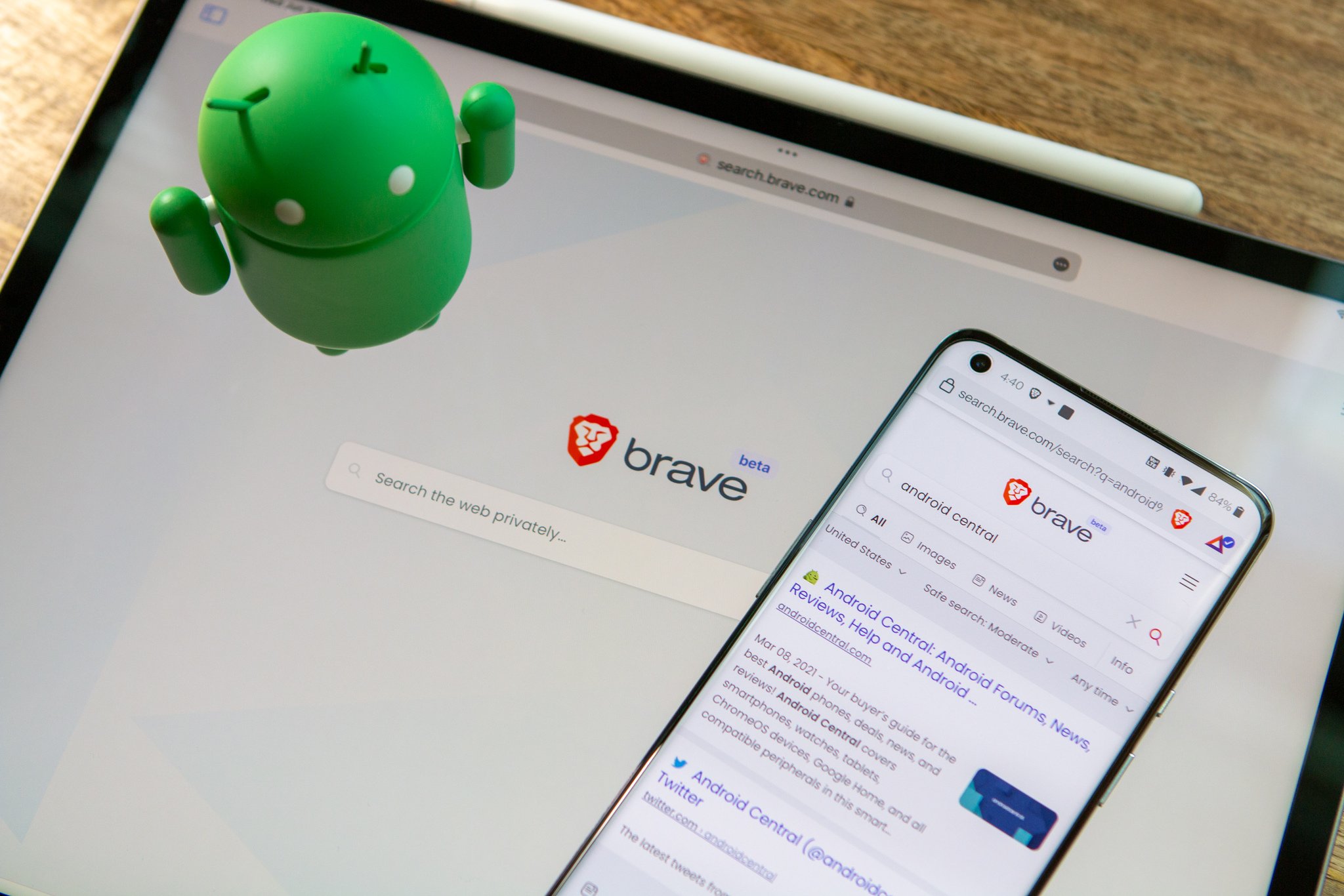Brave's new browser feature keeps you out of Google's AMP pages
Brave says AMP is harmful to "users' privacy, security and internet experience."

What you need to know
- Brave is rolling out a new feature for its browser that will bypass AMP pages and take users directly to the original website.
- De-AMP is designed to rewrite links and URLs in order to block pages rendered with AMP.
- It will be enabled by default in the upcoming 1.38 desktop and Android versions of the browser.
Brave has joined the growing chorus of organizations that want Google's Accelerated Mobile Pages (AMP) to go down the drain. It has announced a new feature that allows its browser to automatically skip over Accelerated Mobile Pages (AMP), and it didn't mince words in denouncing this "harmful" framework.
In a blog post, Brave explained that the new De-AMP is designed to let users go past pages rendered with AMP and navigate directly to the original websites. It works by rewriting links and URLs in order to avoid AMP pages.
In cases where that is not possible, "Brave will watch as pages are being fetched and redirect users away from AMP pages before the page is even rendered, preventing AMP/Google code from being loaded and executed," the company said.
The new feature will be enabled by default in the upcoming versions of the browser (v1.38) for desktops and Android phones, with iOS devices following shortly after. That said, it's now available on the Nightly and Beta versions.
In addition to those steps, Brave plans to introduce another way of bypassing AMP pages. It will expand its "existing debouncing feature to detect when AMP URLs are about to be visited, and instead navigate users to the true version of the page." This feature will be released in version 1.40.
Brave aims for De-AMP to uphold users' privacy, security, and internet experience, describing AMP as "harmful to users and to the web at large."
It noted that AMP gives Google a broader view of which pages people are interacting with, confuses users about what site they’re visiting, and allows Google to further monopolize the web. Brave even warned that the next version of AMP would be even more harmful.
Be an expert in 5 minutes
Get the latest news from Android Central, your trusted companion in the world of Android
The latest move is yet another nail in the coffin for AMP. A group of online publishers, including Vox Media and Bustle parent firm BDG, recently announced a move to scrap AMP as it's taking a toll on their advertising revenues.
Google wasn't immediately available when reached out by Android Central for a statement, but the company told The Verge that it disagreed with Brave's allegations. A company representative said those points "are misleading, conflate a number of different web projects and standards, and repeat a number of false claims."
When Google launched AMP in 2015, it touted the framework's ability to load mobile web pages faster. However, Brave claims that "AMP is bad for performance and usability" and that it "only improves the median of performance."
Brave has always been vocal about Google's privacy practices, and last year it launched its own search engine to challenge the search giant. However, because Brave only has a small share of the search and web browser markets, these efforts are unlikely to make a dent in Google's dominance.

Jay Bonggolto always keeps a nose for news. He has been writing about consumer tech and apps for as long as he can remember, and he has used a variety of Android phones since falling in love with Jelly Bean. Send him a direct message via Twitter or LinkedIn.
